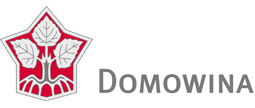Building bridges between minorities in Germany and Ukraine
[Deutsche Version unten]
Last week, from 13.-17.11., the project “Building Bridges between minorities in Germany and Ukraine”, organised by the Society for Threatened Peoples (GfbV) in cooperation with the Crimean Tatar youth organisation DEVAM, continued with its second part in Kiev. The aim of the project was to build an intensified cooperation between minority representatives and organisations of both countries and to get to know more about institutional structures and legal state of the minorities in both countries. FUEN Project Manager for Slavic Minorities Theresia Lippitsch participated on behalf of the FUEN, with the aim, to draw closer ties with minorities and organisations in Ukraine and work on the development of possible future projects. In view of the upcoming FUEN Congress 2019, that is to be held by the Crimean Tatars, the current situation of the country and minorities were of special interest. Having visited the cities Berlin, Kiel and Göttingen during the first part of the project in September in Germany, the participants of the Ukrainian group, among which Crimean Tatars and representatives of Lithuanian, Azerbaijani, and Roma community, became familiar with the work and situation of German minorities and their organisations. They visited the Documentation- and Cultural Centre of the German Sinti and Roma and the Society of German Sinti and Roma, and got acquainted with the work of the Minority Secretariat and the Youth of European Nationalities. The Opening and Cultural Evening was hosted by the Ukrainian Embassy in Berlin. In a visit to the Parliament of Schleswig-Holstein in Kiel, Mr Rasmus Andresen, MdL, gave a deeper insight into the situation in the border region of Germany and Denmark and its history.During the second part of the project, the German group, including representatives of Frisian, Sorbian, Turkish, Alevi and Aramean communities visited Kiev. A visit to the Islamic Culture Centre Al-Riad sensitized the group to the centuries-long existence of the Islamic religion in Europe and the coexistence of diverse religious and ethnic groups in Ukraine. The Crimean Tatar artist Rustem Skibin introduced the young representatives to traditional ceramic arts of the Crimean Tatars and spoke about the awakening and growing interest of young people to their traditional craftsmanship and intangible heritage that has since the occupation of Crimea become a symbol of the community. The first day of the project was closed with a cultural evening and the presentation of the minorities from Germany in the Crimean House that has only been established in Kiev in the end of 2015, and is now hosting Crimean Tatar organisations, political, cultural and events for media.The second day of the project was dedicated to meetings with the Crimean News Agency QHA and the Crimean Tatar radio HAYAT. Both channels operate online - the radio station works in Ukrainian and Crimean Tatar languages, while the news agency also delivers most recent information on Ukraine and Crimea in English. The Human Rights Information Centre, a small NGO in the city of Kiev, works on the promotion of human rights and activism of civil society on Ukraine, it provides quality information and expert support to human rights defenders and media. In a meeting at the Department for Religious Affairs and Nationalities which is located in the Ministry of Culture of Ukraine, the project participants got a deeper insight into the legal structures of minority issues and policies in Ukraine. It has become clear, that the unusual high number of more than a 120 minorities in Ukraine appear, due to a lacking differentiation between different communities as autochthonous minorities, migrant groups, indigenous peoples and others. This is an issue the Ministry is well aware of and is currently being discussed. A decision for an improved differentiation will be taken in the near future.The 2nd part of the Project Lab dealt with the development of a project that should form a continuation of the cooperation between the minorities. Three projects on three topics were presented and evaluated in the closing session. The group on “Political Advocacy and Participation”, among which FUEN’s Theresia Lippitsch participated, developed a concept on a one-day conference, bringing together Ukraine’s minority leaders and representatives of government and civil society, in order to build a greater network and consciousness on minority issues abroad and among the Ukrainian minorities. This event should be established in cooperation of local and international minority organisations and continued by follow-up events. Such events can be used, in order to also establish a closer contact and immediate exchange of information with member organisations of Ukraine, in view of the upcoming FUEN Congress 2019.
Deutsche Version
Project CallProject Blog
Press:
Society for Threatened Peoples і «Деван» — у гостях в Ісламського культурного центру м. Києва


